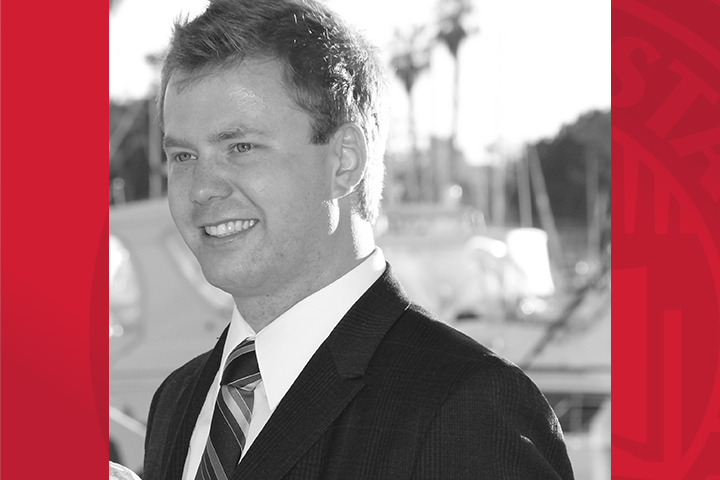A recent graduate of Illinois State’s Peace Corps master’s program says the Syrian refugee crisis he’s studied while working in neighboring Jordan is having a huge impact on the host country and straining the daily lives of its residents, with concerns that a “breaking point” could soon come.
David Becker ’13 arrived in Jordan for training in October 2011 and started his Peace Corps assignment a few months later at a university in southern Jordan. That country’s northern border is with Syria, which has been mired in civil war for more than two years, a conflict that has killed more than 100,000 people and prompted more than 2 million Syrians to flee their home.
More than 500,000 of those Syrians have fled to neighboring Jordan. After seeing the impact those refugees were having on daily life in Jordan, Becker decided to focus on Syrian refugees in his capstone research project to finish his Peace Corps Master’s International Program degree in political science and applied community development.
His final paper, “The Past, Present and Future of Transnational Conflict in Jordan: A Study of Syrian Refugees in the Hashemite Kingdom,” is now one of the Top 10 downloads on Milner Library’s ISU ReD (Research and eData) research hub. His adviser was Yusuf Sarfati, an assistant professor in the Department of Politics and Government, who discussed Syria earlier this week on STATEside.

Syrian refugees in Jordan’s Zaatari camp are seen in November 2012. (Creative Commons photo from European Commission DG ECHO)
“Everyone involved is in a difficult position,” Becker told STATEside. “The Syrians here are rightfully fleeing a dangerous conflict in their home country, and the Jordanians are doing the best they can to graciously host more than one million new foreigners that have come into the country in the last two years. At some point that grace is going to hit a breaking point. It’s hard not to identify with either group.”
The impact of the refugees varies based on what part of Jordan you look at, Becker said. But rents have doubled in many communities due to a housing shortage, and an already difficult job market for Jordanians has been made even worse, he said.
“The most important thing I can say is that the vast majority of the refugees are women and children, and that they can use all the help they can get. Beyond that I would just say that this is a region that is long overdue for peace, and that Jordanians are hopeful that they will be able to retain their own peace here in the future,” Becker said via email.
Becker, who’s done volunteer work such as Habitat for Humanity since high school, came to Illinois State because the Stevenson Center for Community and Economic Development’s Master’s International program offered him both an opportunity to go to graduate school and serve in the Peace Corps. (Students in the program—one of three offered at the Stevenson Center—begin Peace Corps service after one calendar year of coursework.)
After arriving in Jordan, his training included Arabic language classes six days per week, training for his work assignment, cultural training for living in Jordan, and training for his personal health. He’s been teaching conversational English classes the past few semesters, but will soon get the opportunity to teach a new class on research skills for master’s and Ph.D. students. He also worked with students at camps this past summer, including one with Peace Corps ties and a critical thinking curriculum called Brain Camp.
He lives in Jordan with his wife, and they stay connected with their in-home Internet connection, laptops, and smart phones. Becker says there have not really been any security concerns for them.
After finishing his Peace Corps service, Becker hopes to find professional work in development, either in a local community in the U.S. or abroad, after his wife finishes her studies to become a nurse midwife.
“Sadly, I don’t think we’ll be able to get by if I’m a full-time volunteer for Habitat for Humanity, but if I can find a job where my principal responsibility is to help people, I’ll be happy,” Becker said.
Ryan Denham can be reached at rmdenha@IllinoisState.edu.

